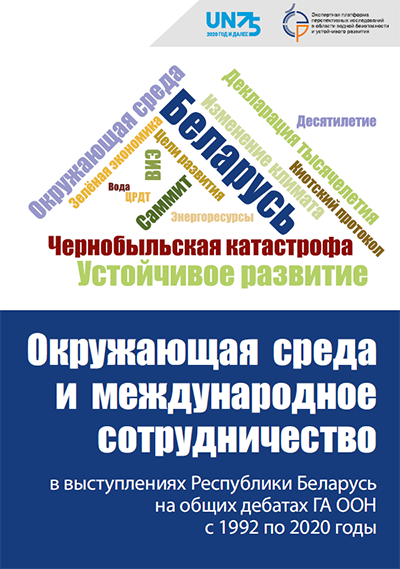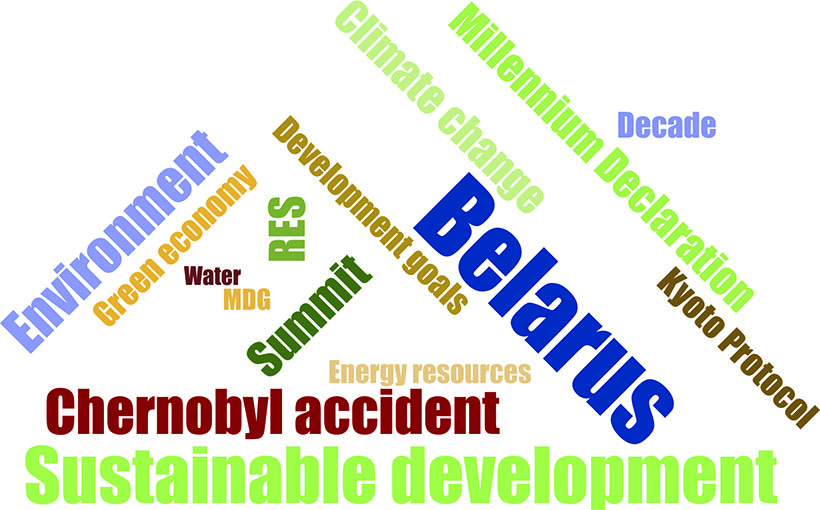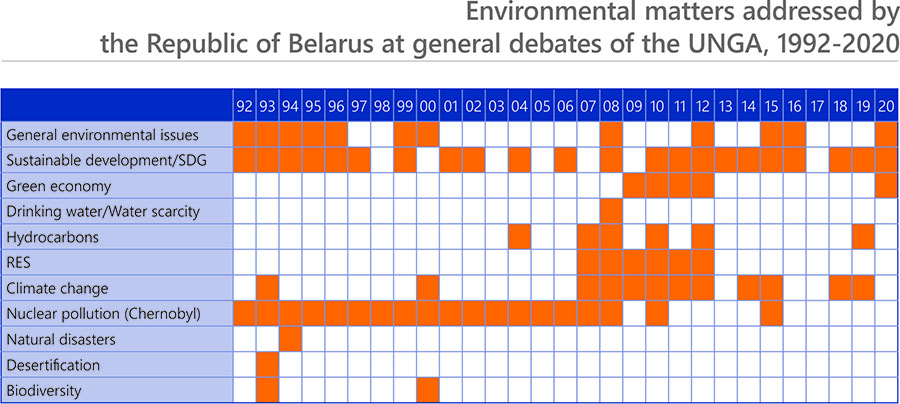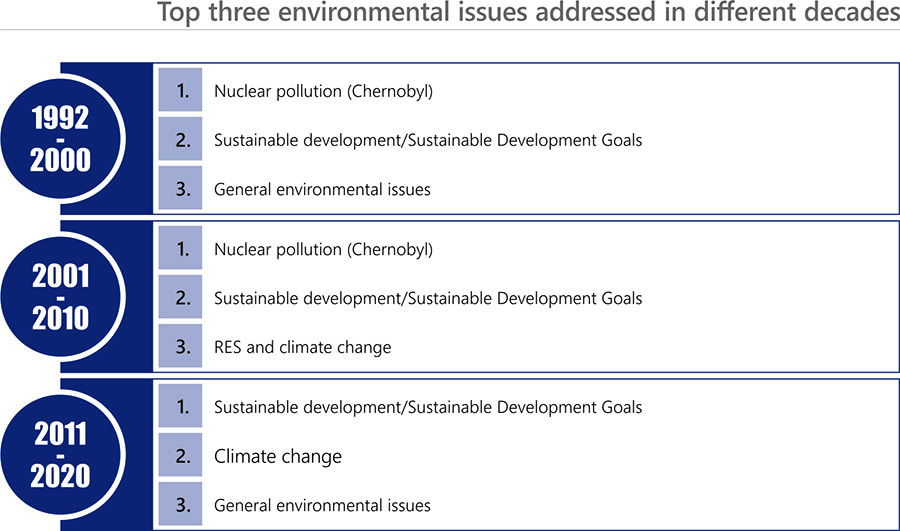Research
Republic of Belarus at the UN General Assembly: Highlights on the Environmental Matters in 1992-2020
Authors: D. Ziganshina, A. Galustyan, D. Abasova
Expert contributed to the study: V. Korneev
Design: A. Degtyaryova
Prepared as part of the UNECE Project “Support to the Network of Russian Speaking Water Management Organizations” financed by the Government of the Russian Federation”
© UNECE, SIC ICWC, authors
On the occasion of the 75th anniversary of the United Nations, platform experts analyzed the statements made at the general debate of the UN General Assembly by the countries from Eastern Europe, Caucasus and Central Asia (EECCA) with focus on the environmental matters.
The objective of this study was to identify how frequently and in what way the EECCA countries addressed matters related to nature use, the environmental conservation and transboundary cooperation from the UN tribune.
A summary review of Belarus’s statements on the environmental matters is given below.
Republic of Belarus at the UN General Assembly: Highlights on the Environmental Matters in 1992-2020
[in Russian]
Download .pdf


From environmental perspective, the Republic of Belarus more frequently addressed the issues of sustainable development and liquidation of consequences of the Chernobyl accident in its statements at UNGA.

The country supported all initiatives aimed at sustainable development goals and reported on national measures taken. Belarus called to consider the “environmental and economic interests of all groups of states” (1993) and advocated the inclusion of “a wider range of problems of economies in transition” into the Development Agenda (1995). Belarus initiated, with the assistance of UNDP and UNECE, convening of an international conference on sustainable development of economies in transition in Minsk in 1997, put forward a proposal to establish a body at the Economic and Social Council to monitor fulfillment of decisions made by the International Conference on Financing for Development (2004) and a global partnership “Help Future Generations Prosper” (2010). Further, the country promoted the idea of “integration of integrations”, i.e. joint searching for optimal way to harmonize economic growth and sustainable development (2015-2018), and plans to hold in cooperation with EAEU a first forum on sustainable development goals in Minsk (2019).

Sustainable development for Belarus is closely linked with liquidation of long-term consequences of the Chernobyl accident. The country speaks about development of international Chernobyl cooperation for socio-economic rehabilitation and sustainable development of affected regions (2002), calls for adoption of resolutions drafted together with other affected countries (1999, 2001, 2003, 2005, 2007, 2010) and for organization of international conferences timed to the Chernobyl accident.


The issues of environmental conservation and also of climate change and green technology (since 2007) were also addressed. There were calls for coordinated actions of developed and developing countries to combat climate change (since 2008), building international cooperation to ensure access of all countries to energy-saving technology and technology for the use of alternative and renewable sources of energy (2007), and establishment under the aegis of UN of a global mechanism to ensure equitable access to up-to-date energy technology for all countries (2008, 2020, 2011). The country is committed to transition to low-carbon sustainable economy and assumes respective obligations (2019).
In the future statements of the Republic of Belarus experts suggest including the issues of efficient water management, with the focus put on transboundary aspects, and reduction of anthropogenic load on surface water and groundwater. The Republic may promote joint initiatives with neighboring countries for development and implementation of programs/measures aimed at improvement of environmental status of water bodies and conservation and improvement of biodiversity in transboundary river basins.
 V. Korneyev:
V. Korneyev:
“The issues related to efficient management of water resources, including their transboundary aspects, and reduction of anthropogenic load on surface water and groundwater may need more coverage. In this field, Belarus, as a state, all catchment basins of which are of transboundary nature, may promote joint initiatives with neighboring countries for development and implementation of programs/measures aimed at improvement of environmental status of water bodies and enhancement of their recreation attractiveness”.
